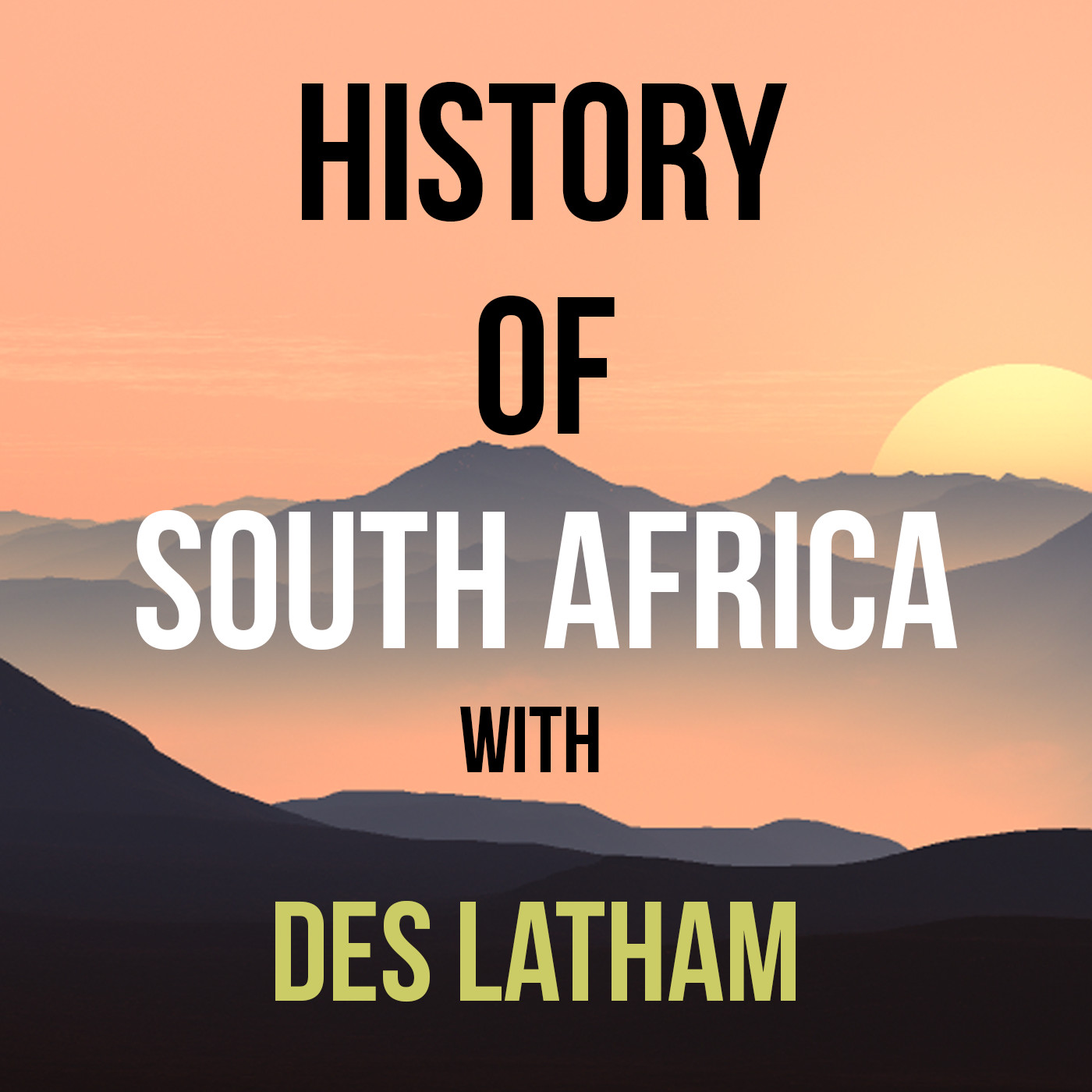Episode 198 - 1853: The Crimean War, Historical Doppler Effects and Quitrent in Keiskamma Hoek
Description
This is episode 198 — and good news!
Apple has listed this podcast as one of South Africas five shows they liked in 2024 — and we are also the third most shared podcast in South Africa on all Apple Podcasts.
Unvelievable, ongelooflijk, Ngiyamangala, Ke Makatsoa!
I am delighted — and indebted to you the listener who has shared this show with friends and family. Thank you everyone!
With that unadulterated self adulation out of the way, back to 1853.
As you know, this series constantly shuffles between world events of the time, and incidents and events in southern Africa.
In China the Taiping Rebellion rolled on— a civil war between the Manchu-led Qing dynasty and the Hakka-led Taiping Heavenly Kingdom. The war had started in 1850 and would only end in 1864.
It’s believed between 20 and 30 million Chinese died in this war, about the same number who died in World War One. By comparison, the 8th Frontier War which had just ended in the eastern Cape was trifling - unless of course you were one of the 16 000 amaXhosa or 1400 of the British soldiers and settlers who died.
The Taiping Heavenly Kingdom was dreamed up by a prophet just like the 8th Frontier War. In the southern African case, Mlanjeni had fused Christian and amaXhosa cosmology into a generated a cult-like following. In China it was Hong Xiuquan, an ethnic Hakka man who had proclaimed himself to be the brother of Jesus Christ and who led the Taiping Heavenly Kingdom.
Also in 1853, the first passenger railway in India began running between Bombay or Mumbai as it’s now known, and Thana was inaugurated in 1853. In the same year, Manchester was granted city status in the UK, and the first public aquarium opened in London.
Yellow Fever killed 8 000 Americans in New Orleans, that’s one reason why we get Yellow Fever shots — because yes folks — it kills you as quickly as a vaccine hesitant with spasmodic dysphonia.
The Swiss watch company Tissot was founded in 1853 and soon the biggest market for Tisso watches, in those days was … Russia. Ironic, considering Russia and a host of countries had gone to war in the Crimea. A Time to die. The first potato chips, or chips as we call it, were prepared and sold by George Crum in New York.
Christian Doppler the Austrian mathematician a physicist died in 1853, famous for his discovery that the observed frequency of a wave depends on the relative speed of the source and the observer.
It’s called the doppler Effect.
Some could argue that there is a doppler effect in historical views, just as the perceived pitch of a wave changes with movement, historical events are viewed differently depending on the distance in time from the event. To stretch this metaphor further, perception is influenced by position, shaped by cultural, geographical and ideological positions. The closer you are to the event, the more intense it is. Thus, the Historical Doppler Effect.
The Crimean War kicked off in October 1853.
Word of these events, of course, were rippling across the planet, sometimes taking months to reach the furtherest corners. The Boers in South Africa for example were acutely aware of the Crimean war, and that their enemy the English were involved.
More Episodes
Published 11/24/24
Episode 197 - The Show Trial of Andries Botha and the Forgotten Significance of the 8th Frontier War
This is episode 197. Which is a prime number and therefore symbolic too because this episode we’re dealing with a unique event in Southern African history.
The 8th Frontier war, which began on Christmas Day 1850, was going to end eventually although as with all conflicts that stretch into...
Published 11/17/24
This is episode 196 and we’re covering the movement towards sef-government and the first Cape Constitution which included what’s known as a qualified Franchise.
A trend had been sweeping British colonies by the mid-nineteenth century where the coming commonwealth was intent on running its own...
Published 11/10/24


